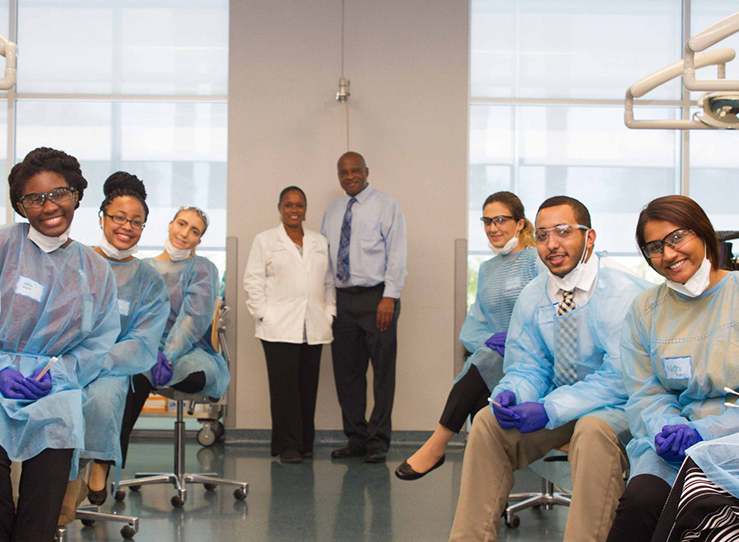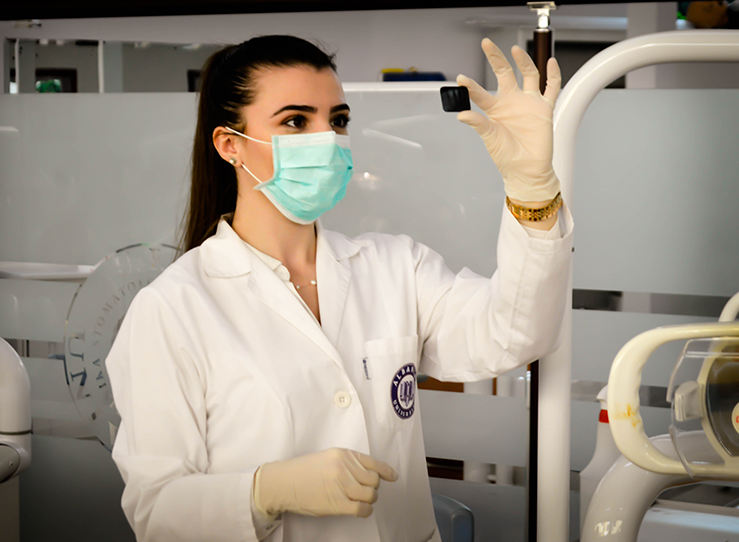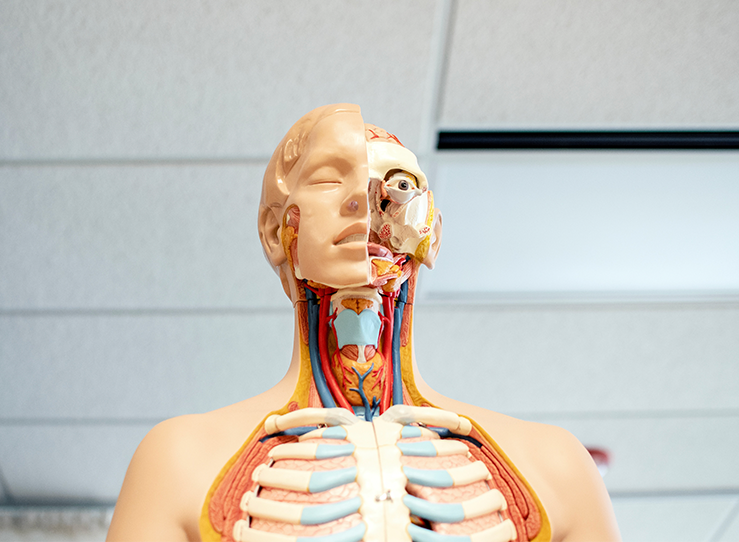
Lecture Discussion Pathway
Lecture Discussion Pathway
Lecture presentations and laboratories are at the heart of the Lecture/Discussion Pathway (LDP). Students usually spend the morning in lecture sessions and the afternoon in a combination of lectures, laboratories, tutorials, small group discussions, and independent study sessions.
How Does LDP Work?
There are two phases of LDP:
- Phase I Core Curriculum is designed to introduce students to the basic concepts of Gross Anatomy, Biochemistry, Immunology/Microbiology, Pathology, Pharmacology, and Physiology.
- Phase II Curriculum uses a systems approach to medical education. Lecturers present instructional materials that go beyond the basic principles mastered during Phase I. Primary care physicians and specialists offer clinical knowledge and perspectives based on their own experiences with patient care as it relates to the particular system.

Is LDP the Choice for You?
LDP is ideal for students who:
Learn well from a combination of presentations and readings; and
are more comfortable in a teacher-directed environment.

Clinical Experience
History and Physical Examination stresses a comprehensive examination of the patient while developing a proficiency in the use of diagnostic equipment. The course gives the student firsthand knowledge of the clinical aspects of medicine.

Osteopathic Manipulative Medicine
LECOM students learn the basic history, philosophy, principles, and practice of osteopathic manipulative medicine. Hands-on diagnosis and treatment is the foundation of osteopathic whole-person health care.

Evaluation
Examinations consist mainly of multiple-choice questions similar in format to licensing board exams. Quizzes may be utilized to provide feedback to students prior to larger examinations. In addition to these oral practical examinations may also be administered.
